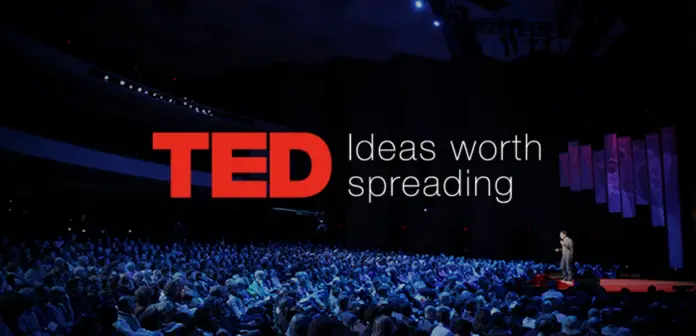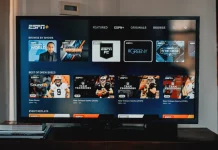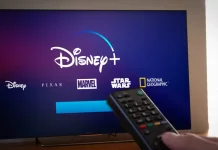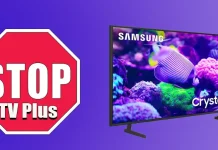TED lectures in the form of short speeches by experts seem to be known to everyone. But the Internet isn’t limited to just one platform. We have compiled a selection of English-language alternatives to TED conferences.
Short lectures have been a popular internet format for education in recent years. The success of TED in many ways has inspired the distribution of content useful for general development. We have found out what other platforms share the speeches of interesting speakers. In the previous selection we collected lectures from the Russian segment, now we will turn to English-speaking ones.
Big Think
Big Think is a platform that has an impressive collection of expert materials. This site features interviews, presentations, and roundtables by speakers from various fields. There are video, audio, and text formats. Podcasts are collected not only on the site, but also on streaming platforms. Big Think gathers the world’s leading experts who assess current issues. Philosopher Slavoj Žižek, theoretical physicist and active science popularizer Michio Kaku, and Virgin Group founder Richard Branson speak here. They discuss completely different topics, such as whether humanity can destroy itself, as well as give advice to aspiring entrepreneurs. Big Think creator Peter Hopkins calls it “YouTube for intellectuals,” though the project has long gone beyond a single platform.
Ideacity
Ideacity is an annual Canadian conference that is unofficially called “the premier gathering of minds.” The format of the lectures is very similar to that of TED: each speaker also has twenty minutes to speak. Ideacity, on the other hand, has a much wider range of topics. They invite anyone who has something new, relevant, and thought-provoking to say. But the field of work doesn’t really matter: You’ll find artists, scholars, activists, and even agitators. Speakers at the conference included politician Robert Kennedy Jr., bestselling author Margaret Atwood of The Handmaid’s Tale, and the youngest circumnavigator, Laura Dekker. The lectures will suit those who love the TED format but want to discover something new.
99U
The annual 99U conference brings together experts to inspire creative people to develop professionally and turn ideas into reality. The guest speakers are people with strong careers who hold leadership positions in their industry. They share practical advice from personal experience and come from a range of professional sectors. Sample topics from the conference: “Rethinking Productivity”, “If You Don’t Understand People, You Don’t Understand Business”, “How to Calculate How Much Your Work is Worth”. Speakers share pragmatic and realistic ideas that will help develop careers in creative and related industries.
Talks at Google
Google Corporation has made its own alternative to TED Talks. Their platform features lectures by influential thinkers and figures from around the world. Unlike TED, where speeches last 10-20 minutes, at Talks at Google the speakers are not so limited in time. The average length of the lectures is about an hour.
The talks are divided into sections: the speakers can be divided by country or occupation. Experts range from musicians, journalists and actors to linguists, astronomers and philosophers. Lectures are held at the Google campus for employees and guests of the corporation. Some of the lectures are informative and similar in topic to TED, and some are close to the entertainment content. Here, for example, we find interviews with Hollywood movie makers and speeches by American comedians. But still the main directions of Talks at Google are connected to science, new technologies, and the world order of the future.
PopTech
PopTech is an annual social innovation conference where experts share ideas at the intersection of popular culture, technology, and civil society. The platform gathers people from diverse backgrounds to bring their thoughts to the world and themselves inspired by the presentations of other experts. The event is designed to develop potential opportunities: the creators want to create a territory that will encourage people to do new research and discoveries. Among the topics discussed at the conference are “What Science Can Learn from Religion,” “How to Unleash Creativity,” and “War in the World of Science.
The Moth
The Moth platform collects stories about stories. Guest speakers recount stories from their lives and share their experiences with listeners. The name “The Moth” was coined by platform creator George Dawes, who recalled how moths swirled around a burning lamp on the summer veranda during evening conversations with friends. The platform’s mission is to promote public speaking and share the diversity of human stories with the world. The Moth launched in 1997 and in nearly a quarter century has been able to collect thousands of live stories told in front of audiences without notes. And The Moth: 50 True Stories, a book based on the speeches, became a New York Times bestseller in 2013.
Ignite Talks
Ignite are short speeches, five minutes long, where presentation slides automatically change every 15 seconds. They are quick, engaging talks on a wide variety of topics. The goal of the lectures is to condense your idea into as short a time as possible and talk about it quickly and briskly. So as not to lose the audience’s attention. Here are scientists who clearly show why people should be vaccinated, entrepreneurs who tell you how to attract millions of users to your website in a short time, and parents who share their experiences of raising children with special developmental needs.
PechaKucha
PechaKucha, which translates to “chatter” in Japanese, is another format for short presentations. Speakers are given 20 slides, 20 seconds each, and in that time they have to tell their idea. The project was originally created as an open event for young designers in Tokyo, but PechaKucha has grown to include over 900 cities around the world, and the number of speakers has grown to several hundred people. The channel has collected lectures in a stovepipe format on a variety of topics: “The Urbanization of Chinese Cities”, “What Sounds Trees Make”, and “The Art of Soft Sculpture”.






